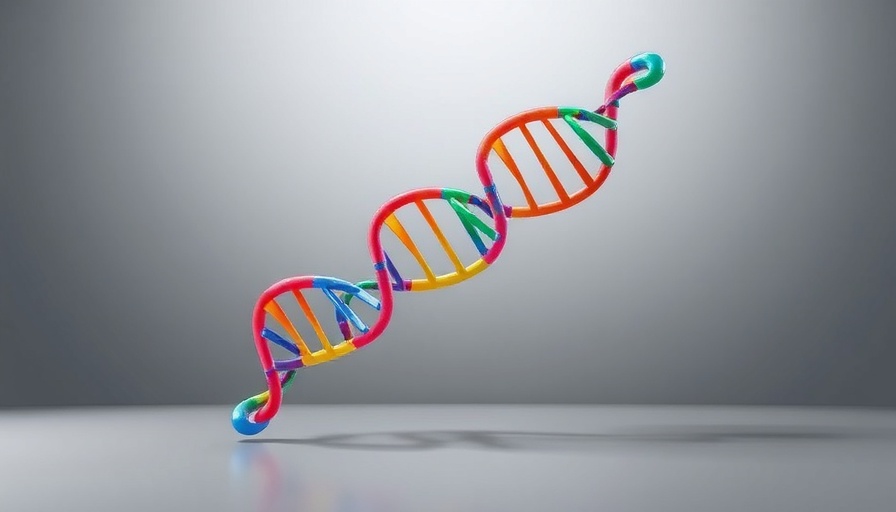
Unpacking the Future of Gene Editing
In recent years, gene editing has transformed the landscape of biological research, leading to breakthroughs in understanding and treating diseases. The latest advancement comes from Yale University, where researchers have unveiled an upgraded CRISPR tool—CRISPR-Cas12a—that streamlines gene editing significantly. This innovative technology promises to enhance our understanding of multi-gene interactions and their roles in immunological responses.
The Power of CRISPR-Cas12a: A Game Changer
CRISPR technology, particularly the earlier Cas9 variant, allowed targeted changes to single genes. However, the new CRISPR-Cas12a not only improves upon this by enabling researchers to modify or assess multiple gene sequences simultaneously but also enhances the precision of these modifications. By developing variations of the Cas12a mouse model, scientists can view how different genetic changes influence a variety of diseases, including prevalent issues like cancer and autoimmune conditions.
From Theory to Practice: Practical Applications of Gene Editing
The applications of this new technology are immense. One significant advantage of the newly devised mouse models is that they will facilitate rapid development of therapies. For example, the ability to create models of liver diseases or multiple forms of cancer allows researchers to test treatments much more efficiently than before. This directly aligns with the ongoing quest for more personalized medicine approaches in the biotech industry.
Benefits That Could Transform Healthcare
Imagine being part of a world where complex diseases can be tackled not just one genetic mutation at a time, but multiple at once. This shift is what CRISPR-Cas12a offers—an integrated approach that could potentially lead to groundbreaking therapies. By understanding genetic interactions in detail, researchers can pave the way for treatments that are tailored to patients' unique genetic makeups.
Ethical Considerations in Gene Editing
As with all powerful technologies, the advancements in gene editing bring about pressing ethical questions. The capabilities of CRISPR to modify human embryos or create genetically modified organisms present moral dilemmas. Researchers and ethicists must engage in ongoing discussions to ensure these powerful tools are used responsibly and equitably.
The Road Ahead in Biotechnology
The development of CRISPR-Cas12a holds significant promise for the future of biotech and medicine. It opens doors not only for enhanced disease modelling but also for novel therapeutic strategies that could redefine treatment paradigms. As we stand on this brink of discovery, it is vital to remain informed and engaged with these advancements—not only to support scientific progress but to advocate for ethical practices in biotechnology.
In conclusion, gene editing technologies like CRISPR-Cas12a are heralding a new era of medical research, enabling us to tackle the complexities of diseases with unprecedented precision and speed. As we take the next steps in this exciting journey, let’s embrace the responsibility that comes with such power.
 Add Row
Add Row  Add
Add 




Write A Comment